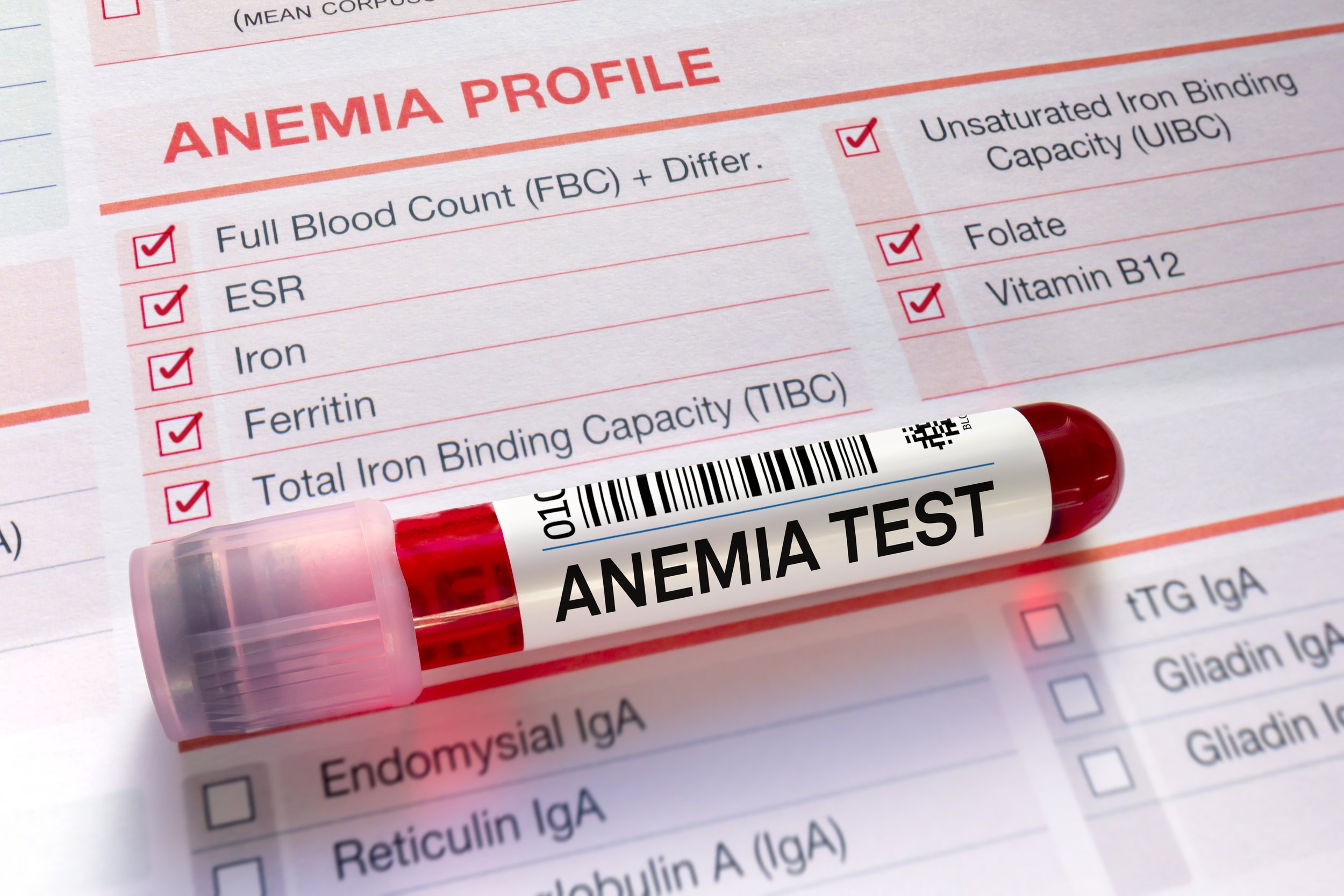Iron Deficiency and Anemia Check-Up
Iron deficiency and anemia are often confused but are not the same. Iron deficiency means your body doesn’t have enough iron. Anemia can be a result of iron deficiency and occurs when there are fewer red blood cells or less hemoglobin in the blood.
To illustrate, think of it like a water tank: iron deficiency is like having low water in the tank, while anemia is when the water level is so low that the tap can't provide enough.
Anemia, characterized by a dicrease of hemoglobin, can significantly impact your overall health and well-being. Often associated with fatigue, weakness, and shortness of breath, anemia can have various underlying causes.
While iron deficiency is a common culprit, especially in women due to menstrual blood loss, it's essential to consider other potential factors.
Our Anemia Check-up details
🏷️ Price : CHF 129.-
⏰ Get your results in 3-4 days
What happens if anemia is left untreated?
Anemia, if left untreated, can lead to a range of serious health complications. Since it reduces the amount of oxygen carried in the blood, vital organs and tissues may not receive adequate oxygen, leading to:
Heart problems
Fatigue and weakness
Shortness of breath and dizziness
Delayed growth and development
It's crucial to address anemia promptly to prevent these serious consequences.
Our test includes a detailed analysis of your complete blood count (CBC), CRP (to assess inflammation), iron status, folic acid (B9), and vitamin B12. This comprehensive approach allows us to identify if your anemia is due to iron deficiency, vitamin deficiencies, or other underlying health conditions.
Understanding the root cause of your anemia is crucial for effective treatment and management.
Our goal is to provide you with the necessary insights to regain your vitality and improve your quality of life.
FAQS
-
Iron is an essential mineral your body needs to produce hemoglobin, the protein in red blood cells that carries oxygen throughout the body. Without enough iron, your body can’t produce sufficient healthy red blood cells, which may lead to anemia.
-
Common symptoms of low iron or anemia include:
Fatigue and weakness
Pale skin
Shortness of breath
Dizziness or headaches
Cold hands and feet
If you experience these signs, a blood test like our Anemia Check-Up can help detect iron deficiency and related conditions.
-
Iron is absorbed mainly in the small intestine. The absorption process depends on several factors, including the form of iron, your current iron levels, gut health, and the presence of enhancers (like vitamin C) or inhibitors (like calcium or coffee and tea). Some people may experience reduced iron absorption due to chronic illness, inflammation, or digestive issues.
-
There are two types of dietary iron:
Heme iron, found in animal products, is well absorbed.
Non-heme iron, found in plant foods, is less easily absorbed.
Factors such as low stomach acid, certain medications, or poor diet can affect how much iron your body actually takes in.
-
Iron-rich foods include:
Red meat, liver, and poultry (high in heme iron)
Legumes, spinach, tofu, pumpkin seeds, and quinoa (high in non-heme iron)
Fortified cereals and breads
Pairing iron-rich foods with vitamin C (like citrus or bell peppers) can enhance absorption.
-
There are several forms of anemia, including:
Iron deficiency anemia – the most common, due to low iron levels
Vitamin B12 or folate deficiency anemia – due to lack of key nutrients
Anemia of chronic disease – linked to inflammation or chronic conditions
Hemolytic or genetic anemias – caused by abnormal red blood cell breakdown or production
Our panel focuses on identifying nutritional and functional causes, especially iron-related anemia.
-
There are several forms of anemia, including:
Iron deficiency anemia – the most common, due to low iron levels
Vitamin B12 or folate deficiency anemia – due to lack of key nutrients
Anemia of chronic disease – linked to inflammation or chronic conditions
Hemolytic or genetic anemias – caused by abnormal red blood cell breakdown or production
Our panel focuses on identifying nutritional and functional causes of anemia, especially those related to iron and vitamin deficiencies.
-
Yes. In many cases, anemia develops gradually and symptoms can be mild or mistaken for everyday fatigue. That’s why routine testing is important—especially for women, vegetarians, athletes, or people with chronic conditions. Our Anemia Check-Up detects subtle changes in iron and red blood cell markers early.

